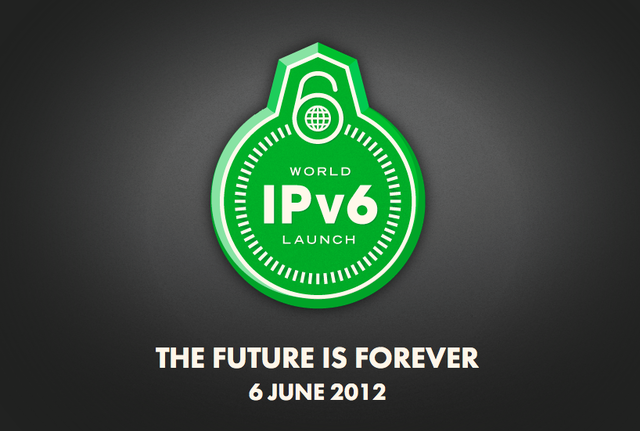Ipv6 Launch Enables Trillions of New Addresses Online

The internet expanded tremendously on Wednesday, June 6 when Internet Protocol version 6 (IPv6) was launched across the globe. The new protocol will be replacing the previous IPv4 version but not many people will notice the change because the change has no visual signs. The IPv6 will allow the internet to have trillions of more addresses than it could previously handle and was a necessity as space was quickly running out online.
June 6 had come to be known as World IPv6 Launch as major internet players including Facebook decided to permanently turn on their IPv6 networking technology. In total, 1,500 web sites and ISPs from 22 countries have enabled their next generation technology and are under the watchful eye of the Internet Society. The group will monitor progress and make sure no problems occur during the change over.
To many users the big commotion may seem uncalled for but the change has been welcomed by most of the large online companies in the world. The IPv6 was desperately required by the internet to keep expanding because the latest trends have introduced so many internet enabled devices that the web could not keep up. Today consumers have smartphones, laptops and tablets that need an IP address to connect to the internet. The IP is a unique address that identifies a device and allows it to communicate with another device. IPv4 offered 4,294,967,296 such unique addresses. However, the demand has quickly out stripping the limited supply and IPv6 was brought in because it can offer 340,282,366,920,938,463,463,374,607,431,768,211,456 addresses.
The switch to the new protocol will not be easy and only a handful of sites have actually switched over right now. The process will be slow and expensive overall but it is a necessity that all will eventually comply with. With many ISPs and major internet players ready to rumble, the smaller sites and internet providers are expected to enable the next generation protocol in the upcoming years.







